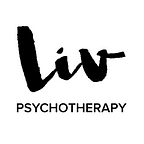Collective Calamity and Therapy…With a Dash of Sitcom
Originally published on the Psychotherapy Action Network (PsiAN) Forum
As therapist and patient, we find ourselves in a strange situation during a global pandemic. Pre-pandemic, we were two people leading relatively separate lives. One life, the patient’s, was somewhat known to the other. The other’s life was typically obscured. Now, we are subject to some of the same forces at the same time: isolation, contagion, and loss. For all of us, there is an impact, but the ways in which that impact is felt varies wildly.
People responding differently to the same adversity was cleverly captured in the Emmy-winning sitcom, Monk. In an episode from 2009, the obsessive-compulsive, phobic detective Adrian Monk confronts a city-wide garbage strike. Bags of trash pile up in the street, spilling out horrible odors and blocking sidewalks. Monk can barely function during this systemic collapse. He begins collecting and sorting his trash into stacked boxes, eventually mailing them to his therapist. He suffers a psychotic break, convinced that rock star Alice Cooper committed murder.
Meanwhile, others carry on with their day-to-day routines, casually leaping over stray garbage bags. So Monk, a genius detective, temporarily lapses into psychosis, while others are able to continue functioning. How could therapy help a patient like Monk? And what role do therapists play, as they, too, face bags of rotting garbage?
In a therapy of depth, insight, and relationship, the therapist would show Monk a healthier way to cope with their collective calamity, help Monk consider his relationship to the world, and give Monk a new relational experience. Life has its dangers, there’s no argument there. But why is Monk always so focused on these dangers? Are there times when the dangers are less top of mind? Can Monk still work and sometimes enjoy life, despite the stinky refuse?
The Monk theme song so eloquently croons, “you better pay attention or this world we love so much might just kill you.” So Monk pays attention — almost always — to life’s dangers, especially the invisible ones (smells, germs, toxins). His relationship to the world is one of deep mistrust. What you can’t see will kill you. Monk and his therapist would likely discuss how even before the garbage strike, Monk was preoccupied with germs, wiping his hands after every handshake (and we must remember, Monk lived in a pre-COVID world!). The ordinary and even pleasant parts of life, like a warm handshake, were perceived as a threat.
How did Monk’s phobic, suspicious relationship to the world develop, and how could he and his therapist help change this relationship? It may stem from a traumatic event (his wife was murdered) and seems to mirror relationships he had to family members as a child (his father abandoned the family with no warning). Just as young children need a secure relationship with their caregivers to feel brave enough to explore, Monk now needs a secure relationship to feel safer in the world.
The therapist can help build this relationship with Monk. To do so, the therapist must be authentic, emotionally present, and containing. The therapist needs to follow-through on agreements and promises and explore Monk’s feelings when trust has been breached. The therapist may also self-disclose feelings about the calamity to help Monk feel less alone in his experience.
It won’t go perfectly or smoothly. The therapist will inevitably fail, perhaps saying something misattuned, or coming late to a session. Monk will inevitably mistrust the therapist. But in stark contrast to past failures, Monk and his therapist will have the opportunity to explore these rifts and repair them. This is how secure relationships work.
As Monk has more and more experiences in a secure relationship, he will find it possible to have a different relationship to the world as well. Yes, life’s dangers will always be there, and it is not adaptive to deny them when action is needed. However, it is also not adaptive to endlessly marinate in fear. For Monk, a therapy of depth, insight, and relationship could help shepherd some of his dread back into the unconscious, thus clearing room in Monk’s conscious mind for peace, fulfillment, and joy.
Irene Yancher, PsyD is a psychotherapist practicing in San Francisco. If you are interested in seeing Irene for psychotherapy, please visit Liv Psychotherapy.
If you like this piece, please share and “heart” it on Medium.
